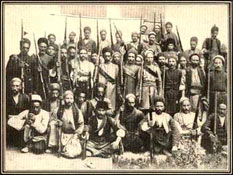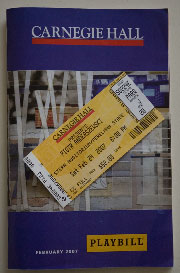
Helped out with a variety of chores in the morning, including changing a number of lightbulbs (Grandpa is actually a bit taller than me, but I suppose I’m a bit more limber when it comes to climbing on top of tables), getting printer paper and replacing the lost camera cable, and various other odds and ends. Oh, and I got a haircut too. I look almost conventional for a change, which is itself unconventional.
Right after lunch, Grandma dropped me off at the White Plains train station. I had exactly 1 minute at the station before the train arrived, depositing me at Grand Central barely 35 minutes later. From there, I caught the subway (again, almost no waiting), and wound up in my apartment exactly one hour after leaving the grandparents’ place in Westchester. If it was always this easy, maybe commuting wouldn’t be a bad idea…
I had a package on my desk when I got back (delayed, almost a week, by the previous week’s snow), so I had another go at disassembling the laptop and replacing its hard drive. Using the same guide as before (thanks, ifixit), but a somewhat better Philips screwdriver, I did in fact swap in the new larger drive. The great thing is that not only is it 200GB, but because it’s 4200RPM, the machine is really quiet now. Almost a little too quiet, since I have to stick my ear against the case now sometimes to tell if it actually asleep or not. And yes, I really do need the extra 80GB. The photos add up fast. Very fast.
The rest of the day was quiet, spent exploring the press in the Iranian Constitutional Revolution (1906-11) and the ideology of the Young Turk Revolution (1908). Good stuff. What was that quite I used to like so much? Oh, right: “There never was a good war or a bad revolution.” Edward Abbey. Certainly for a historian, the second part is true.
 A rousing start for 2008. I should list some resolutions here, but the only one I can think of so far is to get my house in order. Somehow.
A rousing start for 2008. I should list some resolutions here, but the only one I can think of so far is to get my house in order. Somehow.








